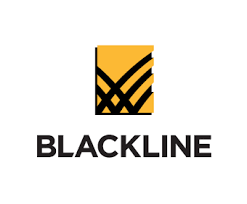Redundant or Reinvented? The Future of Payroll Careers in the Age of AI

AI Moves Into the Payslip
The future of payroll is no longer a concept. AI systems are increasingly embedded into payroll operations, automatically updating HMRC tax codes, calculating National Insurance contributions, and processing statutory sick or maternity/paternity pay. According to MHR’s 2025 survey, 52% of UK payroll teams report that automation has reduced manual processing time by over 30%.
Payroll staff notice these changes daily. Software flags outdated tax codes, reconciles pension contributions, and highlights anomalies in pay runs. While AI can perform arithmetic quickly, human oversight is essential for retroactive pay adjustments, discretionary bonuses, and complex leave scenarios. For example, an employee returning from unpaid parental leave may require adjustments across multiple deductions and NI categories. AI can identify the anomaly but cannot determine the correct legal calculation without human verification.
Humans Handle the Exceptions
Exception management remains an area where experience and judgment are irreplaceable. AI can detect discrepancies, but it cannot determine whether an overpayment stems from a misconfigured benefit, a retroactive bonus, or a clerical error. A 2024 ADP report indicates that 68% of payroll errors in UK SMEs still require manual intervention to resolve effectively.
Payroll professionals reconcile miscalculated National Insurance contributions, correct auto-enrolment pension discrepancies, and manage statutory pay anomalies. Platforms like Sage, Xero, and Workday flag underpayments or overpayments, but human review is required. Handling overlapping bonus payments or inconsistencies in benefits deductions remains a core skill that demands professional expertise.
Compliance Isn’t Automated
Automation cannot guarantee regulatory compliance across all scenarios. AI can update payroll systems with the latest HMRC rules, yet professionals must verify statutory pay, pension contributions, and tax filings. Misclassifying employees for National Minimum Wage, failing to apply correct pension auto-enrolment rules, or incorrectly reporting SSP can trigger fines or audits.
Payroll oversight involves validating flagged errors, reconciling data from HRIS systems, and documenting compliance. Professionals also need to interpret legislative changes and integrate them into payroll processes, tasks AI alone cannot perform reliably.
Self-Service Isn’t a Replacement
Employee self-service portals and AI chatbots increase efficiency significantly. Staff can view payslips, update personal details, and submit queries independently. EY’s AI payroll chatbot, deployed in multinational firms, resolves routine deduction and benefit questions, reducing inquiry volume substantially.
However, these tools cannot interpret retroactive pay adjustments, explain discretionary bonuses, or manage complex pension discrepancies. Payroll professionals remain essential for interpreting outputs, correcting miscalculations, and ensuring compliance. AI enhances productivity but does not replace expertise and professional judgment.
Dual Skills Drive Value
The future of payroll rewards dual expertise: technical fluency and legislative knowledge. Professionals now need skills in SQL, APIs, and BI tools to extract actionable insights, alongside mastery of statutory pay, HMRC regulations, and pension auto-enrolment requirements.
Upskilling is essential for career progression. Payroll staff capable of configuring automated workflows, reconciling complex benefits, and advising management on optimization increasingly take on strategic roles. Firms report faster payroll cycles, improved compliance, and fewer errors when staff combine technical and legislative expertise effectively.
Payroll in Real Time
AI enables real-time payroll processing, calculating pay, tax, and deductions as employees log hours or submit leave requests. Predictive analytics flag underpayments, late contributions, and anomalies in real time, improving operational efficiency.
Human oversight remains crucial for accurate processing. Misconfigured benefits, incorrect NI categories, or overlapping statutory pay calculations can cascade into errors. Professionals interpret alerts, approve corrections, and ensure statutory obligations are met. Real-time AI alerts reduce risk but do not remove accountability.
Blind Trust Is Risky
Over-reliance on AI carries significant risks. Payroll systems can miscalculate SSP, SMP, or SPP, and integration errors between HRIS and payroll platforms may cause duplicate or missing payments. Data security is critical, as payroll information is highly sensitive and confidential.
Firms that fail to retrain staff risk losing oversight, increasing exposure to HMRC fines or tribunal claims. Professionals who adapt to AI-enhanced workflows transform from back-office operators to strategic advisors overseeing compliance and guiding automated systems.
Reinvention, Not Redundancy
The payroll profession is evolving rather than disappearing entirely. Automation reduces repetitive tasks, but expertise in tax codes, statutory pay, pensions, benefits, exception handling, and payslip corrections remains indispensable. Professionals who combine legislative knowledge, technical skill, AI oversight, and judgment are positioned for advisory and leadership roles.
The future of payroll lies in a partnership between humans and machines. AI performs calculations, while professionals interpret outputs, ensure compliance, and resolve complex cases. Those who embrace technology, upskill, and manage exceptions effectively will secure relevance, influence, and career growth in an industry transforming at unprecedented speed.





